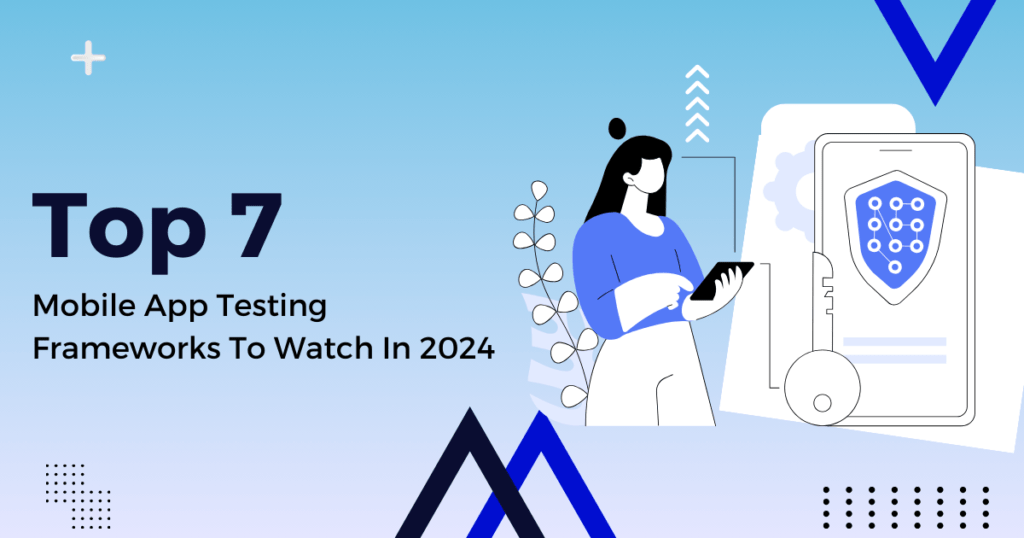Mobile app testing plays a vital role in the development cycle, as it ensures that apps perform well across devices and under different conditions. Testing frameworks have become more sophisticated with the rapid advancement of technology.
They offer enhanced features that streamline the testing process. In 2024, a number of mobile app testing frameworks will dominate the market. Here are the top 7 mobile app testing frameworks that you should be watching in 2024.
1. Appium
Appium is a popular open-source framework for testing mobile applications. It supports Android and iOS platforms, allowing testers to use their favorite programming languages, such as Java Python and Ruby. Appium is known for its ease of integration and flexibility with various CI/CD tool.
- Key Features
- Testing cross-platform
- Support for multiple programming language
- Integration with CI/CD Tools
2. ContextQA
ContextQA’s AI-driven approach is revolutionizing mobile app testing. It automates all aspects of the testing process from manual testing, to release management, reporting and test automation without needing any code. ContextQA is able to save time and money compared to script-based automation.
- Key Features
- AI-driven Software Test Automation
- No-code automation
- Automated translation from manual to automated steps
- Evidence collection for easier release management
- Automated scripts can save up to 80% of time
- 10x faster execution
3. Espresso
Espresso is a popular Android app testing framework developed by Google. It offers a simple API to write concise and reliable Android UI test. Espresso’s synchronization features ensure that tests run smoothly. It is a favorite of Android developers.
- Key Features
- Simple and Clean API
- Synchronization capability
- Integrating Android Studio
- Fast test execution
4. XCTest
Apple’s official iOS testing framework is XCTest. It allows developers create and run unit, performance, and UI testing for their apps. XCTest allows developers to ensure that their iOS apps are reliable and robust.
- Key Features
- Native support for iOS apps
- Integration with Xcode
- Comprehensive coverage of tests (unit, performance and UI tests).
- Swift and Objective C support
Ready to enhance your software quality and accelerate your time to market? Contact us today at sales@stelotechnology.com to request a customized quote for your business!
5. Calabash
Calabash, an open-source framework for mobile app testing, allows automated UI acceptance tests. It works with both Android and iOS apps and uses Cucumber. This means that tests are written using natural language and are easy to maintain.
- Key Features
- Testing cross-platform
- Natural language test scripts for Cucumber
- Support for multiple programming language
- Integration with different CI tools
6. Detox
Detox, a mobile application testing framework that covers the entire process from start to finish, is particularly effective at testing React Native applications. It ensures that the app works well in real-world conditions, by running tests on emulators and actual devices.
- Key Features
- React Native Apps: Designed for React Native applications
- Support for both real devices and emulators
- Asynchronous Testing Capabilities
- Integrate with popular CI/CD Tools
7. Robot Framework
Robot Framework is a free open-source framework for automating testing of mobile apps and other types. The test cases are created using a keyword-driven method, which is easy to read and understand. Robot Framework’s capabilities are extended to mobile apps with plugins such as AppiumLibrary.
- Key Features
- Keyword-driven Testing
- Extensible using various libraries and plug-ins
- Cross-platform support
- Integration with other tools, e.g. Selenium and Appium
The conclusion of the article is:
Mobile app testing will continue evolving in 2024 with the development of AI and automation technology. ContextQA is a framework that uses AI to optimize and automate the testing process. The right testing framework will depend on your project’s specific requirements, such as platform support, integration abilities, and ease-of-use.
These top seven frameworks are suitable for Android, iOS or cross-platform apps. They offer robust solutions that ensure your app runs smoothly on all devices.


